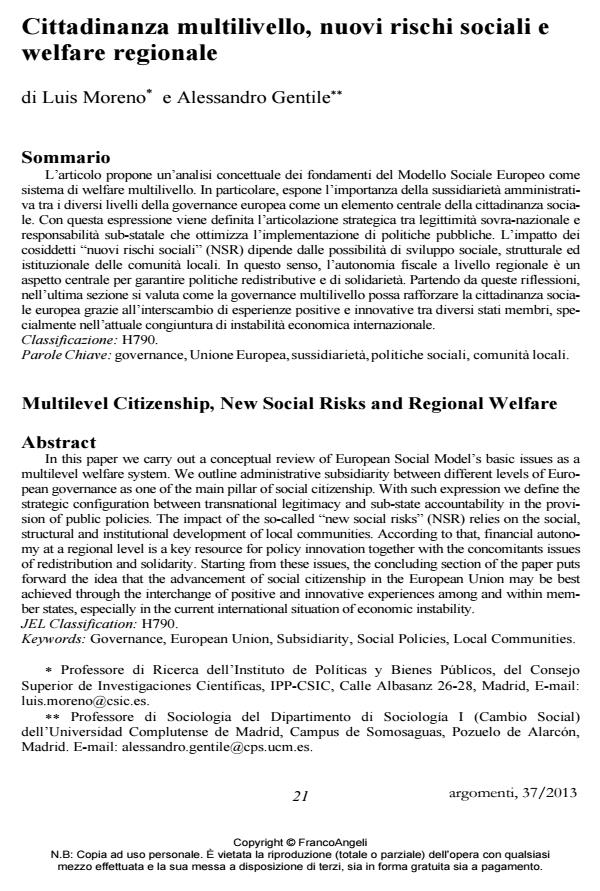Multilevel Citizenship, New Social Risks and Regional Welfare
Journal title ARGOMENTI
Author/s Luis Moreno, Alessandro Gentile
Publishing Year 2013 Issue 2013/37
Language Italian Pages 23 P. 21-43 File size 689 KB
DOI 10.3280/ARG2013-037002
DOI is like a bar code for intellectual property: to have more infomation
click here
Below, you can see the article first page
If you want to buy this article in PDF format, you can do it, following the instructions to buy download credits

FrancoAngeli is member of Publishers International Linking Association, Inc (PILA), a not-for-profit association which run the CrossRef service enabling links to and from online scholarly content.
In this paper we carry out a conceptual review of European Social Model’s basic issues as a multilevel welfare system. We outline administrative subsidiarity between different levels of European governance as one of the main pillar of social citizenship. With such expression we define the strategic configuration between transnational legitimacy and sub-state accountability in the provision of public policies. The impact of the so-called "new social risks" (NSR) relies on the social, structural and institutional development of local communities. According to that, financial autonomy at a regional level is a key resource for policy innovation together with the concomitants issues of redistribution and solidarity. Starting from these issues, the concluding section of the paper puts forward the idea that the advancement of social citizenship in the European Union may be best achieved through the interchange of positive and innovative experiences among and within member states, especially in the current international situation of economic instability.
Keywords: Governance, European Union, Subsidiarity, Social Policies, Local Communities.
Jel codes: H790
Luis Moreno, Alessandro Gentile, Cittadinanza multilivello, nuovi rischi sociali e welfare regionale in "ARGOMENTI" 37/2013, pp 21-43, DOI: 10.3280/ARG2013-037002